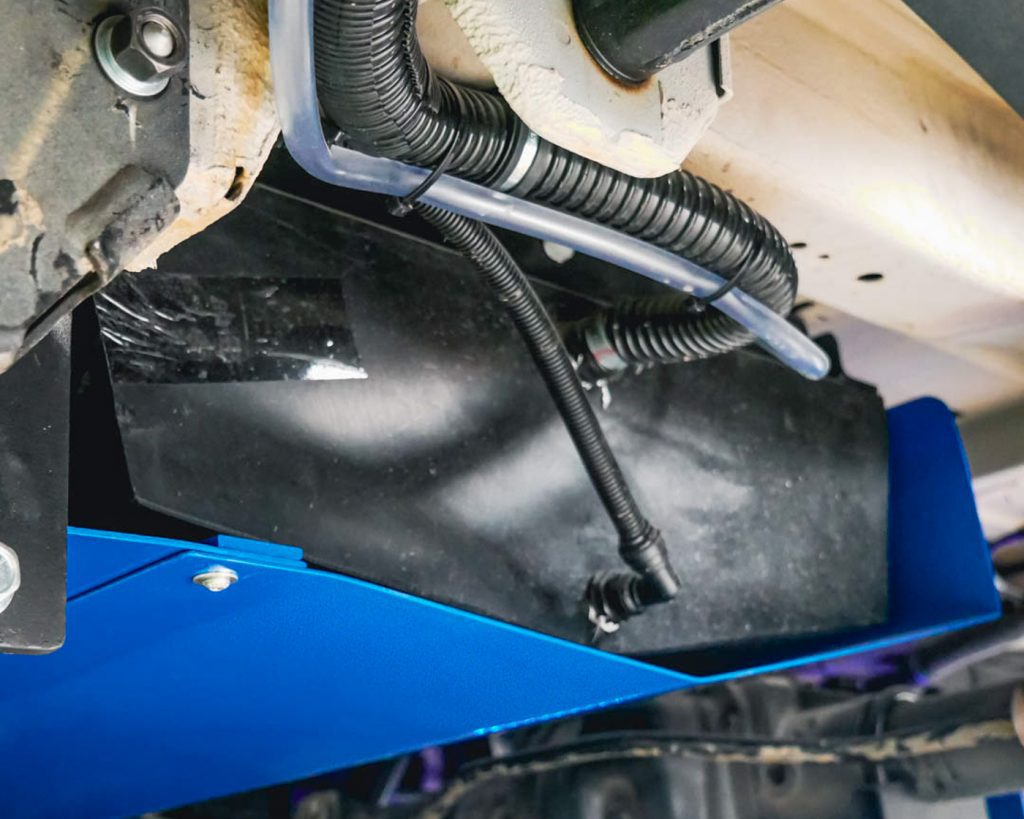Introduction
Value retention is a critical aspect to consider in any investment decision. It refers to the ability of an asset to maintain its value over time, resisting depreciation and offering a reasonable return if or when you decide to sell. The higher the value retention, the slower the asset depreciates and the closer its resale value will be to the original purchase price. This is particularly significant regarding tangible assets like vehicles, where depreciation can significantly affect the onsell value.
When we talk about vehicles as investments, our minds often turn to luxury cars or vintage models. However, a different category of vehicles has proven to be a surprisingly wise investment – Recreational Vehicles (RVs), specifically van conversions.
These vehicles offer more than just transportation; they provide a versatile living or working space on wheels, capable of being your home away from home, your office in the wilderness, or your ticket to endless adventures. In this article, we’ll delve into van conversions and traditional motorhomes, exploring their value retention and why they make a wise investment choice.

Understanding Value Retention
Value retention measures how well a vehicle holds its value over time. It’s essentially the opposite of depreciation, which refers to the loss of value that most vehicles experience as they age, accrue mileage, and wear and tear. With high-value retention, a vehicle resists this depreciation. It maintains a significant portion of its original value, even after several years of use.
When we look at RVs, traditional motorhomes, and van conversions, these vehicles tend to have excellent value retention. This is unique in the automotive world, where rapid depreciation is often the norm.
Three key factors contribute to the high-value retention observed in RVs, traditional motorhomes, and van conversions: demand, durability, and versatility.
- Demand: The market for these vehicles is robust and growing. As more people seek flexible living and travel options, the need for RVs and van conversions has surged. High demand can help maintain high resale values, contributing to solid value retention.
- Durability: These vehicles are built to last. They’re designed to withstand the rigours of travel and various weather conditions, ensuring they remain functional and comfortable for many years. This durability means they depreciate slower than less sturdy vehicles, helping them retain value.
- Versatility: RVs, traditional motorhomes, and van conversions offer more than just transportation. They are mobile homes or offices, adaptable to various uses and lifestyles. This versatility appeals to many potential buyers, keeping high demand (and thus resale values).
Understanding these factors makes it clear why RVs, traditional motorhomes, and van conversions exhibit such strong value retention, making them a financially savvy investment choice.
Van Conversions vs Traditional Motorhomes: A Comparison
When comparing the value retention rates of van conversions and traditional motorhomes, it’s essential to consider various factors that influence these rates.
Starting with traditional motorhomes, it’s generally understood that their depreciation begins levelling off around the 5-year mark. About 21% of the value can depreciate in the first year alone. By the end of three years, they retain around 70% of their initial value. When a motorhome is four years old, its value may have depreciated by approximately 40 to 45%.
On the other hand, van conversions have a somewhat different depreciation curve. Especially when the base vehicle is purchased from new and custom-converted professionals. The exact rate can vary based on numerous factors. Still, as a rule of thumb, a brand new van conversion could be worth, on average, approximately 20% more than its purchase price and conversion cost after completion and retain this value steadily up to the 50,000km mark. Even after this point, the value of a van conversion can remain stable.
The differences in value retention between the two vehicle types can be attributed to several factors. One key factor is the initial cost of the vehicle. Traditional motorhomes tend to be more expensive upfront, which can lead to a steeper depreciation in the first few years. Van conversions, while still a significant investment, are often less costly initially as the vehicle is purchased empty, which might result in a slower depreciation rate. The custom and unique nature of conversions makes them continually desirable in a market full of standard motorhomes. People love to feel like they have something special!
Another factor to consider is the level of customisation. Van conversions are highly personalised, reflecting their owners’ needs and tastes. This customisation can increase the vehicle’s value to the right buyer, potentially boosting its resale value. Being bold and customising a conversion to suit how you want to travel is a great way to make the most of this. Whether this is custom-built board racks, custom-manufactured rear door storage boxes, unique storage solutions or high-end mobile internet hardware.
In conclusion, while both van conversions and traditional motorhomes hold their value reasonably well compared to many other types of vehicles, there are some differences in their value retention rates. These differences are influenced by initial cost, customisation level, and market demand.

Financial Benefits of Converting a Van: An Australian Perspective
The trend of converting vans into customised campervans is gaining momentum in Australia, and for good reason. It provides a unique and personalised way to travel, and there are several financial advantages to converting a van over buying a traditional motorhome.
- Initial Costs: The upfront cost of purchasing a van and converting it into a camper is often significantly lower than buying a new motorhome. For instance, you could buy a used van and pay for the conversion, cheaper than purchasing a pre-converted campervan or a traditional motorhome. In the case of a Mercedes, VW or LDV van conversion, personal and commercial financing options may be available, allowing for payment over time.
- Maintenance Costs: Maintenance costs for converted vans can be more manageable due to the availability and affordability of parts,
- Resale Value: Converted vans have strong resale values, particularly in today’s market, where the demand for such vehicles is high. The level of customisation in a converted van can increase its appeal to potential buyers, thereby boosting its resale value.
To illustrate these benefits, consider the growing trend of ‘van life’ in Australia. Many Australians live in converted vans full-time or part-time, drawn by the financial benefits and the freedom it offers
In conclusion, while both options have merits, converting a van can offer substantial financial advantages over buying a traditional motorhome. These benefits and the trend towards a more nomadic lifestyle make van conversions an increasingly popular choice among Australians.
Summary and Takeaway
In this article, we’ve explored the financial benefits of converting a van into a customised campervan from an Australian perspective. We discussed the significant cost savings in the initial purchase and conversion process compared to buying a pre-converted campervan or a traditional motorhome. We highlighted the manageable maintenance costs due to the availability and affordability of parts, particularly for popular models.
A key point of emphasis was the strong value retention of converted vans. In today’s market, these vehicles are in high demand, which boosts their resale value. The level of customisation possible in a converted van increases its appeal to potential buyers, making it a worthy investment.
Investing in a van conversion isn’t just a lifestyle choice; it’s a financially savvy move. It provides a unique and affordable way to travel or live, with substantial savings upfront and over time. Furthermore, the growing trend of ‘van life’ in Australia underscores this option’s practicality and financial advantages.
If you’re considering such an investment, we invite you to explore the possibility of converting a van. It could be your ticket to financial savings and a unique, personalised travel or living experience. Start your van conversion journey today!



